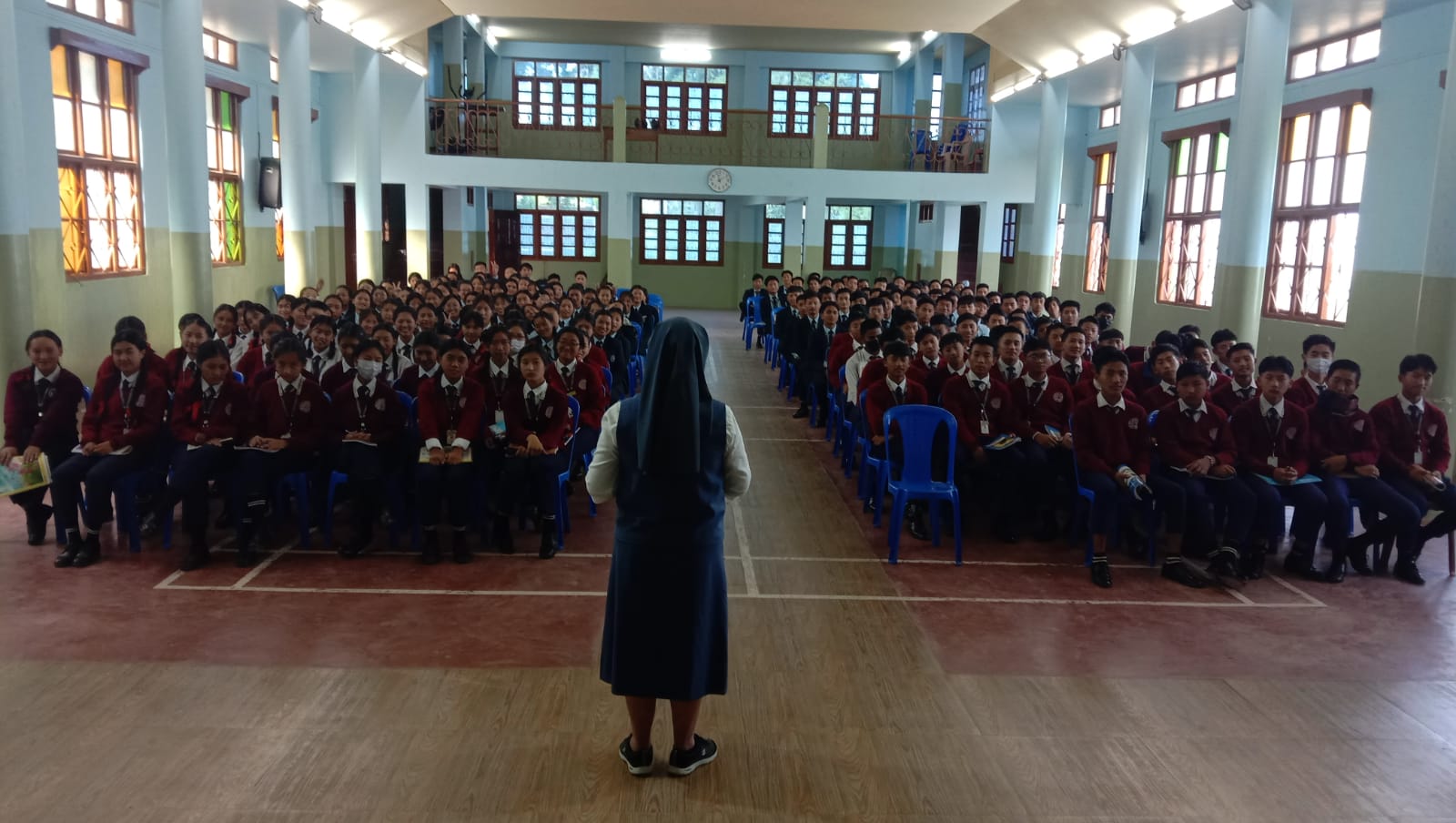In a cross-regional initiative, a series of Media Awareness Sessions for youth and educators took place across educational institutions in Nagaland and Meghalaya.
Led by Sister Anna Kipounamai of the Daughters of St. Paul, the program aimed to highlight media’s influence in today’s digital landscape and equip students with skills for thoughtful media engagement.
The program drew active participation from students, teachers, and staff from various institutions, including St. Paul’s School, Loyola Hr Sec School, and St. Francis De Sales Hr Sec School.
Sessions included discussions, presentations, and activities addressing both the potential benefits of media and the risks of uncritical media consumption.
In Kohima, the program reached diverse audiences. Highlights include the participation of 88 teachers at Phesama’s Teachers’ Training Centre and 110 students at St. Paul’s School. Loyola Hr Sec School in Jakhama welcomed 308 students, along with 44 parish youth from Mary Help of Christians Parish.
Medziphema’s St. Francis De Sales Hr Sec School hosted 280 students, while Tura’s Loyola School attracted 200 students.
The program concluded at Loyola College in William Nagar, where 500 students engaged deeply in discussions on media’s impact.
Rokosanu Rebecca, Parish Youth Secretary for Mary Help of Christians in Jakhama, shared, “The Media Education Animation program gave me insight into media’s pervasive effects. I learned about issues like cyberbullying and mental health, while also seeing the potential for positive engagement.”
A memorable session took place at Loyola School, where Sister Anna conducted an unexpected exercise: she asked a student to leave the hall without explanation.
This provoked confusion and disappointment, leading to a discussion where students condemned the action as unfair. The incident sparked reflection on the responsibility to confront injustices, emphasizing empathy and advocacy.
Sister Anna urged students to practice mindful communication and critically assess the media they consume.
Her narratives, combined with discussions on violence and conscience, encouraged attendees to be active agents of change in their communities.
The sessions ended with a call to action, inspiring students to apply critical thinking and raise awareness of media’s effects.
Tynshine, a Class 12 student from Jakhama, reflected, “The seminar offered insights into social media’s benefits and risks. We were inspired to uphold justice and resist injustice.”
One educator in Nagaland noted the initiative’s success as a model for similar programs worldwide, demonstrating how media education can foster resilience and advocacy among youth in an increasingly complex digital age.







